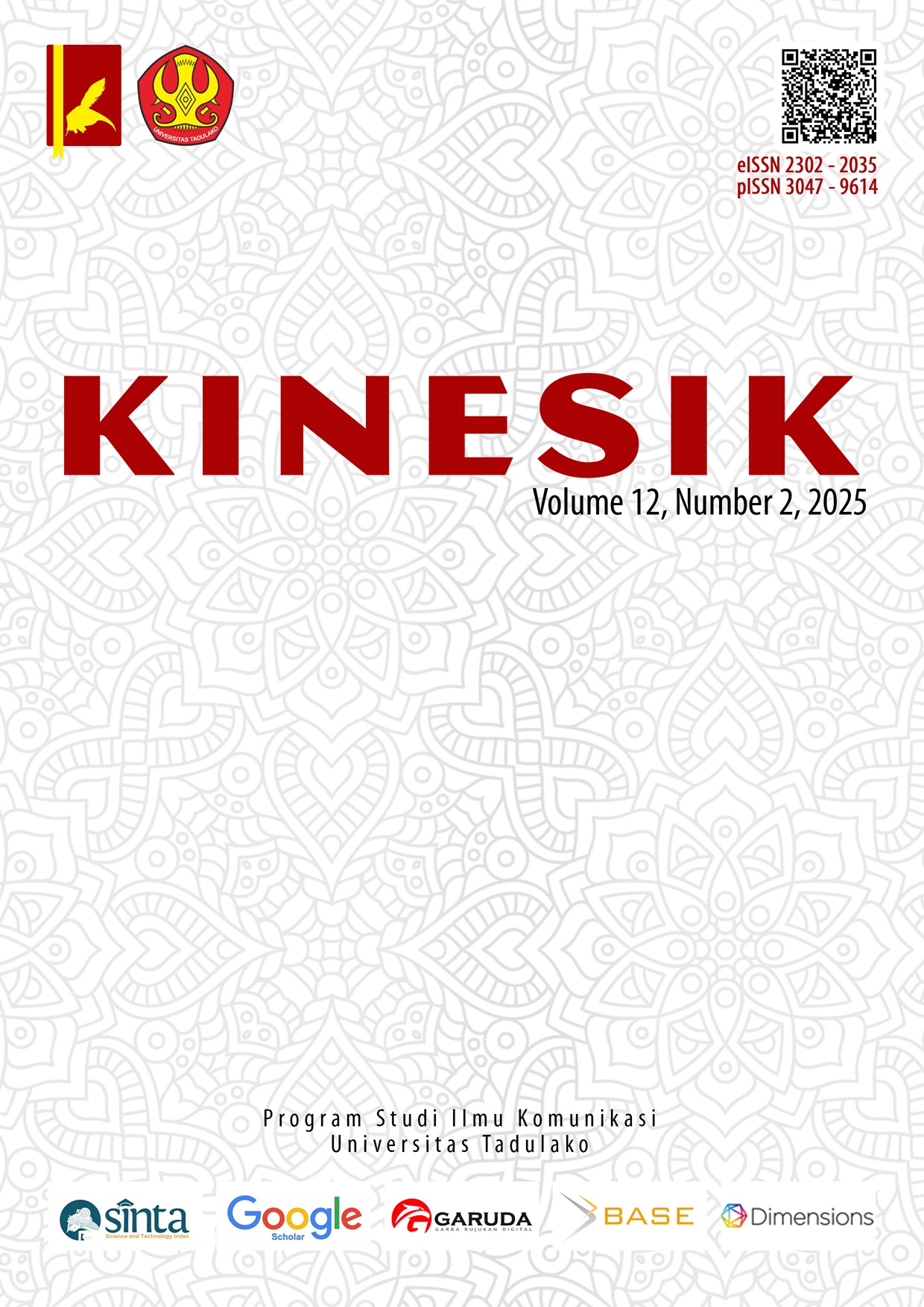Representation of Gender Stereotypes and Patriarchal Culture in MR.DIY Indonesia's Ramadan 2024 Advertisements on YouTube
DOI:
https://doi.org/10.22487/ejk.v12i2.1667Keywords:
Digital advertisements, Gender representation, Patriarchal culture, YouTubeAbstract
Digital advertisements often serve as a medium for reproducing gender stereotypes and hidden patriarchal power relations. This research aims to explore the representation of gender stereotypes and patriarchal culture in MR.DIY Indonesia advertisements titled "Urusan Berbenah Jadi Mudah" and "Urusan Lebaran Jadi Mudah" through semiotic analysis. Using a qualitative approach and Roland Barthes' orders of significance theory framework, the research dissects the hidden mechanisms behind the construction of meaning in both advertisements. The research findings reveal that gender stereotypes and patriarchal dominance do not disappear, but rather transform into more subtle and disguised forms of representation. Advertisements do not merely showcase products, but present social narratives that perpetuate traditional gender hierarchies.
Downloads
References
Azrab, I. A., Saputra, M. F., & Putri, N. A. (2022). Stereotip Perempuan pada Iklan Kecap ABC Versi Tiada Kecap Seenak Kecap ABC. Borobudur Communication Review. https://doi.org/https://doi.org/10.31603/bcrev.7032
Basit, L. (2022). Lensa Gender Di Media Massa: Meta Analisis Politisi Perempuan (M. Arifin, Ed.). UMSU Press.
Bhola, M. (2021). Review on Depiction of “Empowered” Women: A Feministic Analysis of Selected Indian Television Advertisements. Citation: Media Journal, 19, 39.
Blackwell, W. (2010). A Dictionary of Cultural and Critical Theory Second Edition.
Butler, J. (2006). Gender Trouble. Routledge. https://doi.org/https://doi.org/10.4324/9780203824979
Chandler, D. (2022). Semiotics the Basics, Second Edition.
Christopher, E. (2024). ‘It’s a Man’s Job’: Doing Gender and Male Gatekeeping in the Division of Household Labor. Journal of Family Issues. https://doi.org/10.1177/0192513X231224109
Del Barrio, M. Y. F. (2023). The representation of women in Japanese television advertising. A content analysis of female roles and stereotypes. Doxa Comunicacion, 2023(36), 183–209. https://doi.org/10.31921/doxacom.n36a1731
Goffman, E. (1976). Gender Advertisements. Harper and Row.
Hall, S. (1977). Representation: Cultural Representations and Signifying Practices. SAGE Publications.
Karya, D., Kusumastuti, S. Y., Kabul, E. R., Mantong, J., & Sjukun. (2024). Metodologi Penelitian Kualitatif. Takaza Innovatix Labs.
Kasemin, K. (2016). Paradigma Teori Komunikasi dan Paradigma Penelitian Komunikasi. Media Nusa Creative.
López-López, C., & López-Villar, C. (2024). Gender Representations In Fitness Advertising By The #IWorkOutAtHome Community. VISUAL Review. International Visual Culture Review / Revista Internacional de Cultura, 16(5 Spesial Issue), 81–100. https://doi.org/10.62161/revvisual.v16.5218
MR.DIY Indonesia, 2024, Urusan Berbenah Jadi Mudah, YouTube, https://www.youtube.com/watch?v=CHQHplwxPyo .
MR.DIY Indonesia, 2024, Urusan Lebaran Jadi Mudah, YouTube, https://www.youtube.com/watch?v=GuFe7bNttrE .
Nur Rahmawati, L., & Nanda, E. (2024). Jurnal Komunikasi Nusantara Representasi Peran Domestik Ibu dalam Iklan Dancow Bundaku Beda, Tapi #CintaBundaSempurna. https://doi.org/10.33366/jkn.v%vi%i.479
Pambudi, F. B. S. (2023). Buku Ajar Semiotika (1st ed.). UNISNU Press.
Pratama, G., & Setiawati, A. (2020). Eksploitasi Perempuan dalam Iklan Media Massa. In Jurnal Rekayasa Teknologi Nusa Putra (Vol. 6, Issue 2).
Raslie, H., & Zaidi, A. N. M. (2022). Female Representation in Online Advertisements: A Feminist Stylistic Analysis of Beauty Products Advertised on Instagram. Jurnal Komunikasi: Malaysian Journal of Communication, 38(4), 374–396. https://doi.org/10.17576/JKMJC-2022-3804-21
Setiawati, T. (2020). Representasi Budaya Patriarki dalam Film Istri Orang. Komunika: Jurnal Ilmu Komunikasi , 07.
Sidiq Mustof, N., Maemunah, S., & Kustanto, L. (2019). Analisis Makna Tanda Pada Film Kartini : Resistensi Perempuan Jawa Terhadap Budaya Patriarki (Vol. 2).
Sugiyono. (2013). Metode Penelitian Kuantitatif Kualitatif dan R&D. Alfabeta.
Sun, Z. (2024). Exploring Gender Stereotype Perceptions: An Eye-Tracking Study on Household Product Commercials. Dean and Francis, 1. https://doi.org/https://doi.org/10.61173/ebxa6130
Tommi, T., Saidi, A. I., Chonmaitree, T., Abdul Razak, M. R., & Murwonugroho, W. (2022). Humanization of Logo as a Representation of Social Values in Halodoc. JSW (Jurnal Sosiologi Walisongo), 6(1), 43–58. https://doi.org/10.21580/jsw.2022.6.1.9520







